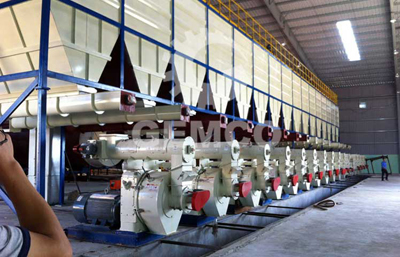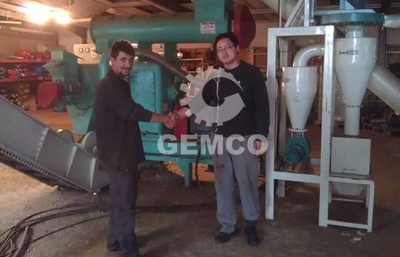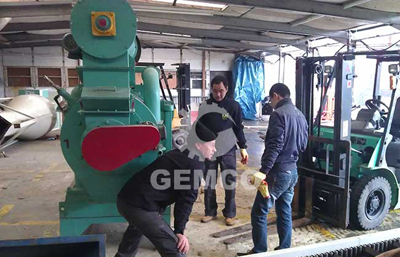Biofuel pellets: a promising clean energy
What’s the use of biofuel pellets?
Biofuel pellets is known as clean and environmental friendly fuel, widely applied in pellet stove, industrial boiler and power plant. By virtue of high heat efficiency and low pollutant emission, it gradually encroaches on the market share of fossil fuel like coal, oil and gas.
Biofuel pellets, also called biomass pellet fuel, are made of agriculture and forestry waste, such as sawdust, peanut shell, rice straw, corncob, wheat bran, hay, etc. After crushing, drying, impurity removing and molding processes, these biomass materials are processed into high-density biofuel pellets. With small volume and weight, it is convenient to store and transport.

How does biofuel pellets get popular?
Since the late period of last century, with the impact of oil shocks and requirement for resource protection, the application of renewable energy booms. Renewable biomass energy develops rapidly, and biomass equipment and technology emerges as time required.
As high-density compression technology gradually becomes mature, different kinds of biomass pellet making equipment hit the market and keep upgrading. Nowadays, in developed areas in Europe and America, biomass fuel has been widely applied, and has become the main fuel for heating in winter.

Applications of biofuel pellets in different countries
The application of biofuel pellets varies because of different country policy. In EU, the largest user of biofuel pellets are England, Netherlands, Demark, Sweden, German and Belgium.
In Netherlands, Belgium and England, biofuel pellets are mainly used in large scale power plant. In Demark and Sweden, they are applied in big power station, regional heating supply system, and small-scale home heating. In German, Italy and French, most biofuel pellets are applied for home heating and industrial boiler.
Sweden is the major biofuel pellets producer in Europe, where they are used as alternative fuel for central heat-supply system. In Austria, pellet furnace takes up 2/3 of the home heating devices. In Italy, pellet stoves with automatic pellet feeding system turn out to be a new market trend.
Biofuel pellets are in badly demand in New Zealand. In recent years, many new wood pellet plant springs up to increase the productivity. As for America, according to EPC survey, the consumption of wood pellets is 9.3 millions tons in 2015, only secondary to EU. Also, the USA is a large pellet stove importer for Europe.

Advantages of biofuel pellets
Compared with fossil fuel bulk biomass materials, biofuel pellets has the following advantages.
- The heat value of biofuel pellets equals coals in practical use. Under normal condition, coals leave 10%-15% combustible content after burned, while biofuel pellets can be burned sufficiently.
- Coal is more environmental-friendly than fossil fuels. Coals and oil release a lot of pollutant gas like SO2 and CO when they are burned. But in terms of biofuel pellets, as it contains mostly C and H organic matters, there is little SO2 and CO in its emission. For this reason, biofuel pellets is known as clean fuel internationally.
- Meanwhile, biofuel pellets is environmental friendly for its low solid emission. The solid residue of coals are ash, alkali and slag, which accounts for 25% to 40% of the total weight. But the remnant for burning biofuel pellets are mostly ash, which only takes up 0.4-7% of the original weight.
- As biofuel pellets are easier to burn than fuel, it dramatically shorten the launching time of combustion equipment.
- Compared with bulk biomass materials, the sustained combustion time of biofuel pellets is 8-10 times. And the combustion state is steady and constant.

In a word, biofuel pellets is a promising industry with huge market potential. To engage in biomass energy, you need stable raw material source, as well as a high-efficiency pellet making machine. Gemco is a professional biomass pellet making machine manufacturer and supplier. We provide pellet machine with different capacity and drive engine to meet customers’ varied demands. Welcome to enquire and consult!
We receive enquiries in English, Español (Spanish), Русский язык (Russian), Français (French) and العربية (Arabic). Our professional team will reply to you within one business day. Please feel free to contact us!




